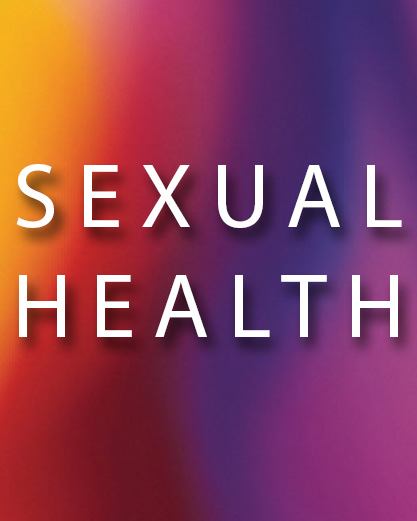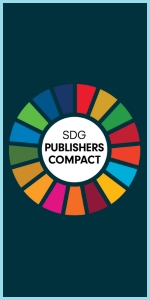Since the outbreak of the severe acute respiratory syndrome coronavirus 2 (SARS-CoV-2) pandemic in December 2019, coronavirus disease 2019 (COVID-19) has already had a widespread impact on fertility. This study comprehensively assessed the effects of SARS-CoV-2 infection on the testis, semen parameters, sex hormone levels and erectile function, and discussed possible transmission routes during sexual intercourse and the effect of vaccination on male fertility. It provides a reference for maintaining male reproductive health under the background of normalised prevention and control of COVID-19.

Sexual Health
Volume 21 Number 2 2024
Painful intramuscular injections of long-acting penicillin remain the mainstay of treatment for syphilis. They are distressing to clients and caregivers and are thought to interfere with treatment acceptance, especially if more than one dose is required. We present a novel method of delivering the same penicillin treatment into the fat, which obviate the need for multiple doses and is associated with less reported pain – a potential gamechanger to improve syphilis treatment adherence and care cascade.
SH23205Catching lightning in a bottle: the STI and HIV 2023 World Congress Participatory Designathon
The International Society for STD Research (ISSTDR) STI/HIV 2023 World Congress hosted a participatory designathon. Global experts and practitioners attending an international sexual health conference were tasked with engaging in a design-thinking, participatory crowdsourcing event to create innovative solutions for improving the control of sexually transmitted infections. This manuscript reports the processes, challenges, and successes of the designathon.
This study used data sourced from Twitter to characterise social media conversations about syphilis. Accurate medical information was limited, whereas tweets about personal experience generated the most engagement. Coupling medical resources and personal experiences may support public health education on social media.
SH23114 Abstract | SH23114 Full Text | SH23114PDF (416 KB) | SH23114Supplementary Material (1022 KB) Open Access Article
This paper reports findings from a survey of school-aged young people in Australia looking at use of, and attitudes toward condoms. Social and relationship factors were most strongly associated with regular condom use, including feeling confident to talk about safer sex with a sexual partner. The paper highlights the importance of working with young people to build confidence and capacity to communicate about sex and condom use.
SH23173 Abstract | SH23173 Full Text | SH23173PDF (290 KB) Open Access Article
Māori and Pacific youth are disproportionately impacted by sexually transmitted infections (STIs). We sought Māori and Pacific young people’s ideas on how to overcome barriers to STI testing. Strategies identified included the need for free and more flexible services, education and health promotion designed to reach young people in their communities. This work highlights the need for community-based health promotion delivered by trusted leaders, framed in culturally appropriate ways with messages that help to normalise, and destigmatise sexual health.
SH23186 Abstract | SH23186 Full Text | SH23186PDF (440 KB) Open Access Article
Chemsex, a type of sexualised drug use, has been associated with potential harm among gay men and it is important to understand users’ experience of related services. Parisian men practising chemsex who attended harm reduction consultations in an infectious disease unit completed a questionnaire: most were frequent users, followed by specialists, and many had attended emergency services. Most were satisfied and reported reduced risks after consultations. Easily-accessible preventive and therapeutic services in centres attended by users may be beneficial.
SH23165 Abstract | SH23165 Full Text | SH23165PDF (249 KB) | SH23165Supplementary Material (872 KB) Open Access Article
The Black Caribbean population have a disproportionately high burden of sexually transmitted infections (STIs). This study explored barriers to engagement with STI testing within a UK-based young adult Black Caribbean community. Engagement with STI testing in young adults from the Black Caribbean community is impacted by historically and culturally embedded practices and beliefs inherited through generations. Targeting these factors within interventions may be effective for increasing STI-testing, and thus reducing rates of STI-infection in this population.
SH23126_COCorrigendum to: Oestradiol implants for gender-affirming hormone therapy: an observational study of serum oestradiol levels and consumer survey
Effective client triage is essential when demand for counselling exceeds capacity. We adapted an existing counselling triage tool to better fit the sexual health setting. Psychometric scales are useful tools in patient assessment and care, however, are best applied in combination with clinical judgement and peer consultation.
This paper systematically develops recommendations to improve current and future digital partner notification interventions. It takes findings from the published international literature and then uses tools from behavioural science to generate a series of simple recommendations. The recommendations should be further operationalised locally with key stakeholders for optimal impact.
SH23168 Abstract | SH23168 Full Text | SH23168PDF (658 KB) | SH23168Supplementary Material (2 MB) Open Access Article
This study aimed to address risky sexual behaviour among adolescents. We tested the effectiveness of a contingency management intervention by juvenile probation officers, primarily designed to address substance use, on reducing risky sexual behaviour among 218 adolescents on probation. Findings indicated this intervention reduced risky sexual behaviour over time. Interventions focused on individual risk behaviours among adolescents on probation populations can have positive ripple effects, evidencing a possible approach for underserved communities lacking clinician access.
HIV rates in Australia disproportionately affect men who have sex with men (MSM) born overseas compared with those who are Australian-born. One explanation may be Medicare eligibility which can affect access to affordable healthcare including HIV pre-exposure prophylaxis (PrEP). This population remains under-researched as they are not captured in routinely collected prescribing data. This study demonstrates that MSM without Medicare accessing a publicly funded sexual health clinic in Sydney are less likely to be on HIV PrEP than MSM who do have Medicare.
SH23178Chlamydia retesting remains low among young women in Australia: an observational study using sentinel surveillance data, 2018–2022
 , Anna L. Wilkinson, Jason Asselin, Louise Owen, Phillip Read, Robert Finlayson, Sarah Martin
, Anna L. Wilkinson, Jason Asselin, Louise Owen, Phillip Read, Robert Finlayson, Sarah Martin  , Charlotte Bell, Catherine C. O’Connor, Allison Carter
, Charlotte Bell, Catherine C. O’Connor, Allison Carter  , Rebecca Guy, Anna McNulty
, Rebecca Guy, Anna McNulty  , Rick Varma
, Rick Varma  , Eric P. F. Chow
, Eric P. F. Chow  , Christopher K. Fairley
, Christopher K. Fairley  , Basil Donovan, Mark Stoove, Jane L. Goller
, Basil Donovan, Mark Stoove, Jane L. Goller  , Jane Hocking
, Jane Hocking  and Margaret E. Hellard
and Margaret E. Hellard
Chlamydia remains as the most notified bacterial sexually transmissible infection in Australia and repeat infections can lead to significant reproductive complications, particularly for women. Guidelines recommended retesting at 3 months following a chlamydia diagnosis, but current retesting rates in line with guidelines are low, and re-infections are common. Increased efforts to improve timely retesting can aid in earlier identification, management and reduced risk of disease burden.
SH23178 Abstract | SH23178 Full Text | SH23178PDF (533 KB) | SH23178Supplementary Material (768 KB) Open Access Article



